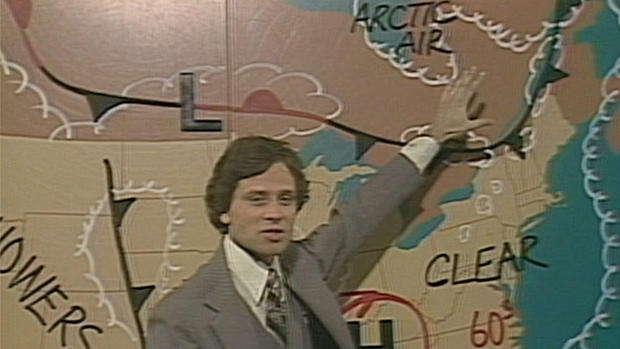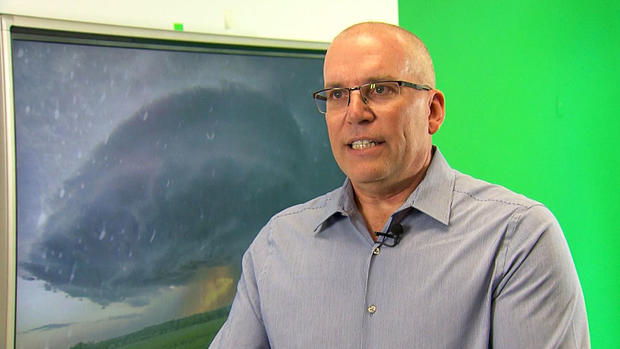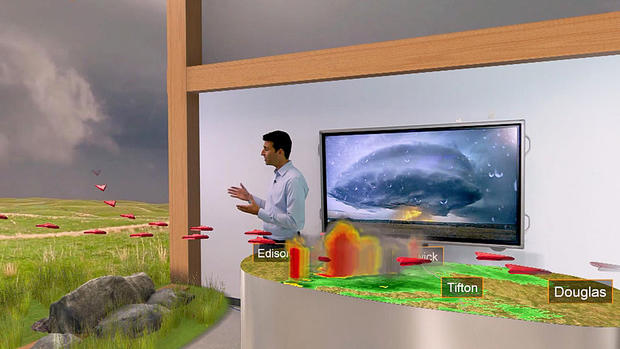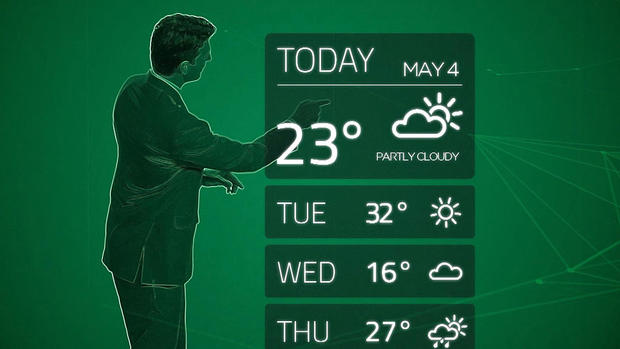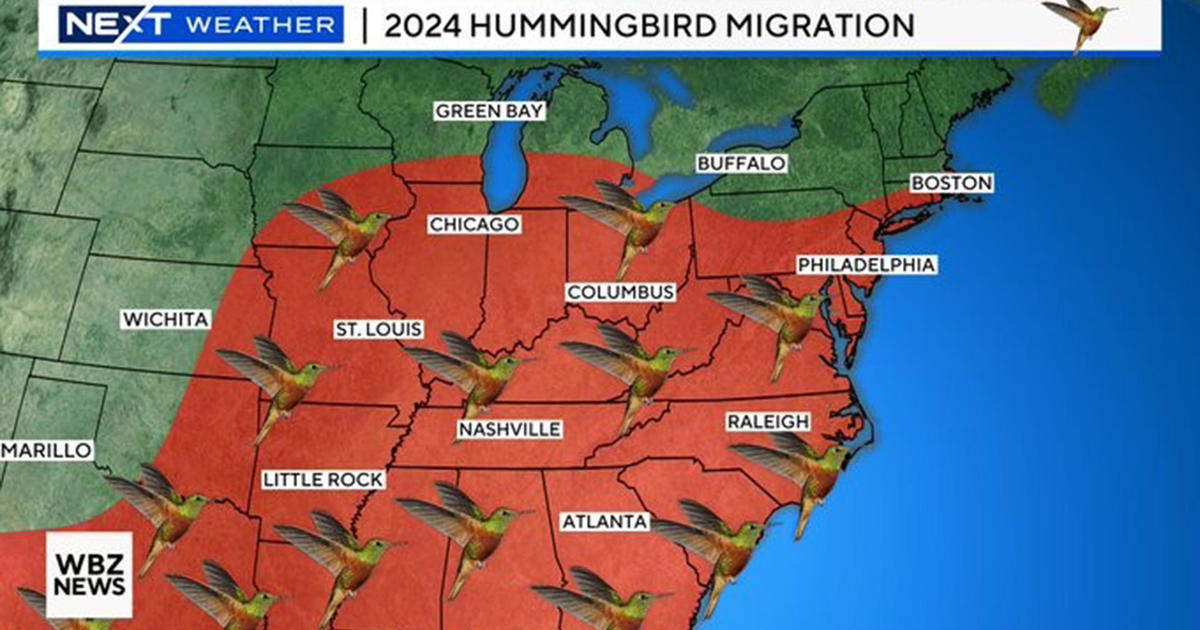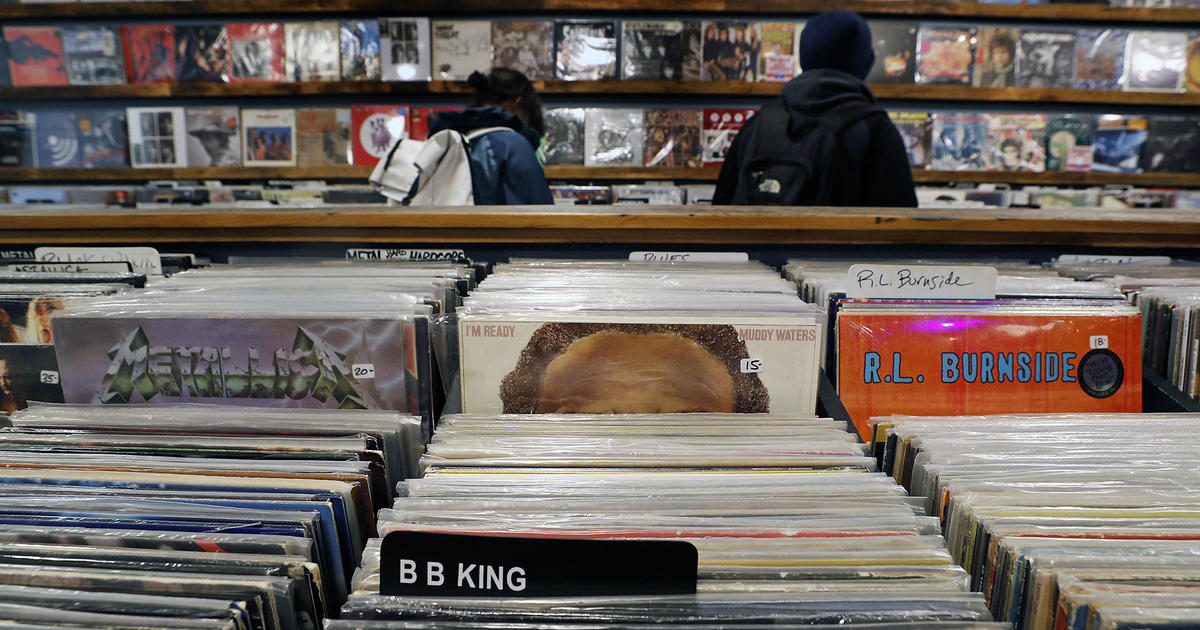Artificial Intelligence May Be The Future Of Forecasting Weather
BOSTON (CBS) -- Our general weather in New England hasn't changed too much over the past 70 years. We still have our four seasons and a wild variety of all sorts of storms and temperatures. Job security! But one thing that has changed quite dramatically in that time is the way we view and receive forecasts for what's ahead.
In the days of Don Kent, the Dean of New England Weathermen, there wasn't much available except a blackboard and chalk. Weather observations were few and far between most of the time. A meteorologist had to depend on scattered reports from airports, fishermen, and phone calls from weather savvy locals. Without the internet, it was a laborious and time-intensive process to gather information and get it on television. These were the pioneer days of meteorology in the broadcast world.
Over time, we've seen the blackboards give way to markers, then sliding walls, and then the advent of computers to help tell the story. We probably now take for granted the extreme detail given for our daily weather! Forecasts by the hour, down to street level during storms, and outlooks months in advance instead of just a couple of days. Graphics have become realistic and provide much more information than ever before. So where do we envision things going in the decades to come?
If you ask Bill Dow of The Weather Company in Andover, MA, the future of weather is artificial intelligence. And in the IBM world, that means 'Watson.'
"You can think of A.I. -- in our world I mean IBM, they mean Watson -- that's your personal assistant. You've told Watson 'here's the weather situations that are important to my audience and when they occur, here's the story I want to tell,'" says Dow.
In essence, the future of weather forecasts will be the ability to customize what information any given user or viewer gets. Dow explains that through Watson and GPS tracking, they will have the ability to 'learn' about you and your interests, and even deliver information based on where you are at the time it is needed. Similar to Iron Man's 'Jarvis.'
Picture a day that starts off sunny. You're a baseball coach, and Watson has learned this. So it knows that you are interested in rain and storms and that you're often outside in the afternoon and evening. At the same time, a forecast outlet can use GPS to know if you are at home, in your car, or if you have your phone in your pocket. A storm is approaching, and Watson sees that you are indeed in the car on the way to Little League practice. So Watson will send an update to your car, knowing that you are inside and heading to practice, give you the updated information about the storm, and track with a timeline to let you know when lightning will be in the vicinity and when rain will start to fall.
If you're a boater, artificial intelligence will know to include any nautical advisories in your tailored forecast. If you're a skier, it might throw in some forecasts for the slopes. Over time, it will learn your favorites and know which ski areas are most important to you. Or it will simply look into your calendar and know you have a trip planned to Loon Mountain, giving you the detailed information for the drive up and during your time there. And naturally, it will know if the weather is going to be poor or good, and will advise a departure time based on conditions.
At the same time, the graphical look continues to rapidly change. Dow says that the gaming industry has been a leader in this realm, and the graphical products for weather have followed suit. Now instead of a flat wall, there is the ability to produce rich 3-D environments to explain weather phenomena. Augmented reality can be added for a more interactive experience.
With all the technological changes, will there be any role left for the humans to play? Dow says yes, though color this meteorologist as somewhat skeptical as the years go by.
"I could see this is virtual experience in the living room," says Dow. "The viewer says I want to see Eric's 7-Day and the 7-Day comes out of their living room floor and virtual Eric Fisher is there, starts to tell him the forecast. But it's also interactive, the viewer can say 'Hey Eric, I'm not really interested in Monday, tell me about the Saturday forecast' and select Saturday. And virtual Eric Fisher gives him the Saturday forecast," explains Dow.
Basically, meteorologists may become Emperor Palpatine in the years ahead. May the forecast be with you, always.
